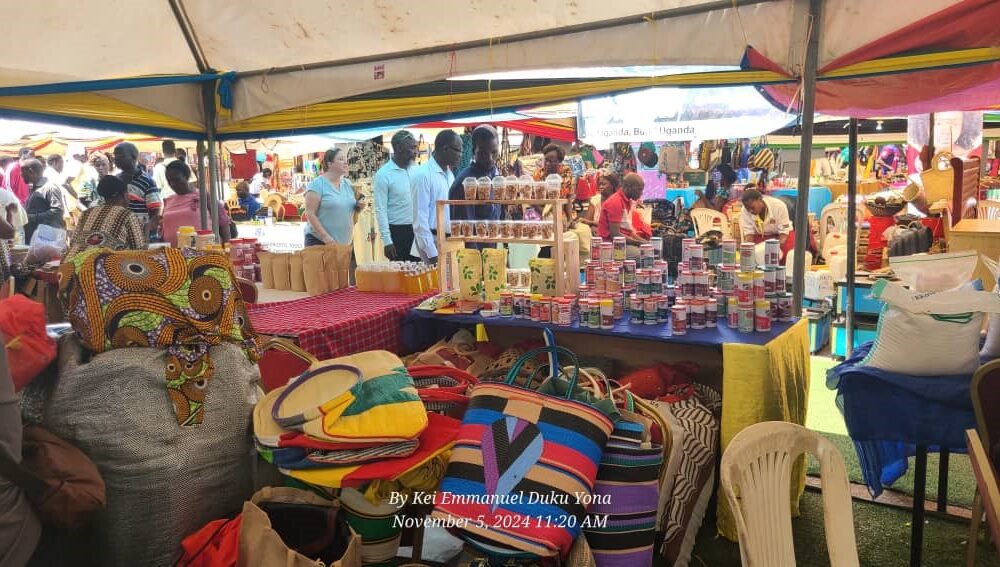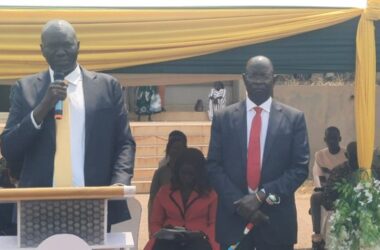By Yiep Joseph
Implementation of new tax rates in the Financial Bill 2024/2025 is set to have a devastating impact on market prices, business community has warned.
With prices already soaring, additional costs could push the country into hyperinflation, leaving citizens struggling to make ends meet.
In an Interview, Robert Pitia, Chairperson of the Chamber of Commerce for Central Equatoria State, warned that the increased tax rates implemented in the 2024/2025 fiscal year could trigger a sharp rise in prices, further straining the already fragile economy.
“Higher tax rates will never improve the economy of any country; it creates hyperinflation. Also, we have issues with our currency, and we also depend on goods outside the country,” he said.
He added that such taxes, besides the increment of prices that affect the normal citizens, discouraged investors who may intend to put their resources into the country’s economy.
This week, South Sudan Revenue Authorities informed stakeholders of the operationalization of the FY 2024/2025.
Under the new tax system, a broad range of goods and services, including imported goods, locally manufactured products, hotel and restaurant services, and telecommunications, will be subject to an 18% sales tax.
Pitia stated that the interconnectedness of the economy means that an increase in the price of one commodity can have a ripple effect, leading to higher prices for other goods and services, including essential food items.
Instead of imposing higher taxes, the Chamber of Commerce advocates for policies that stimulate domestic production and reduce reliance on imports.
Pitia argued that such measures would be more effective in addressing the country’s economic challenges.
According to Pitia, South Sudan Revenue Authority informed the business community and other stakeholders that the taxes were only meant for non-food items.
“The new commissioner general says the taxes are only on non-food items like cigarettes, alcohol, and something that if you do not take it, you cannot die. They said they have not increased their taxes, but what they did was increase the taxes of non-food items like cigarettes, alcohol, and other things like vehicles,” he added.
Pitia argued that taxes on no-food items such as fuel and cars may affect other prices.
“My advice to our government is that this higher tax rate will never improve the economy of any country so people concentrate on every year increasing taxes but they do not know the effect of such taxes on our citizens,” he said.
“Definitely when you increase the taxes on fuel, the transportation cost will increase; that is why I emphasized from the beginning that our government look into the effect before imposing the taxes that affect the life of our people,” he explained.
Meanwhile, on his part, Daniel Magai, a businessman in Juba, expressed that such taxes would increase the prices of goods and commodities in the market.
Magai said the business community would be left with no option but to increase prices in order to stay in business.
“We have options as people doing business, but only when we are taxed do we increase prices of communities; as you can see, imported goods are taxed highly, yet we import alone, and therefore prices of many goods will go high,” he said.
Other tax rates as per FY 2024/2025
Taxes on wages
According to the Finance Bill 2024/2025, a serious increment has been witnessed; however, the South Sudan Revenue Authority claimed that the changes are meant in response to the appreciation of the United States dollar against the South Sudanese pound.
According to the financial bill 2024/2025, the personal income tax (PIT) for monthly income exceeding 90,000 South Sudanese pounds is at 20%, and pension income is taxed at 10%.
Meanwhile, income that exceeds SSP 40,001 but does not exceed SSP 57,000 is taxed with 15%, while those above 570,000 receive 15% taxation.
Withholding tax rates
Taxes on rent, dividends, and interest remain to be taxed at 10% as was the case in FY 2023/2024; however, the government contract payment to a resident, which was 5% in the previous year, is increased to 15%, while the government contract payment to a non-resident has increased to 20%.
In the new FY 2024/2024, mobile money commissioners given to dealers would be taxed at 10%.




